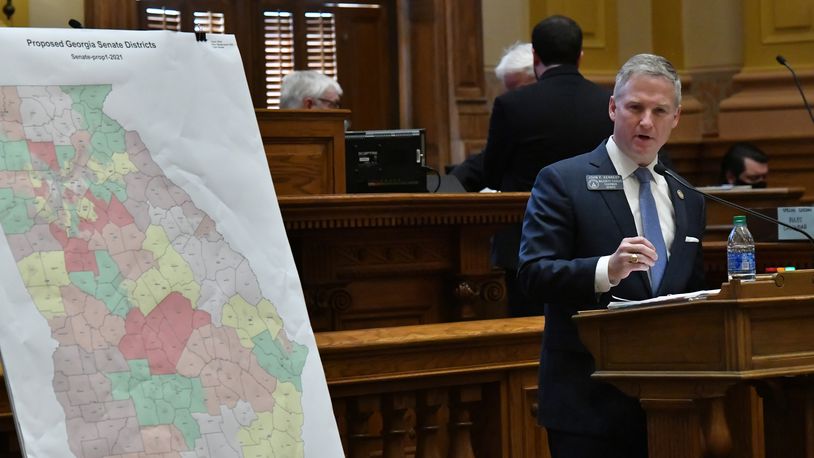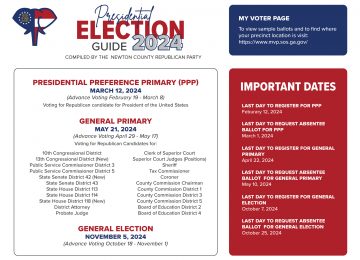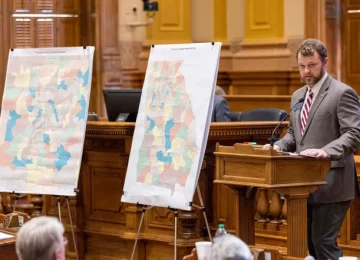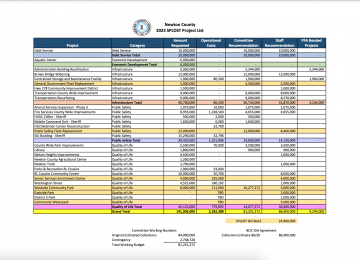New Georgia congressional map aims to increase Republican seats
BY Mark Niesse
November 17, 2021
A new political map of Georgia released Wednesday would help Republicans gain at least one seat in Congress, using redistricting to reverse Democratic gains and flip a district held by U.S. Rep. Lucy McBath.
The long-awaited map could increase Republicans’ 8-6 congressional majority in Georgia’s congressional delegation by stretching a suburban Atlanta district into much more conservative areas to the north in Forsyth and Dawson counties.
The redistricting proposal arrives two weeks into a special legislative session, and the General Assembly’s Republican leadership plans rapid approval, solidifying their hold on Georgia’s delegation ahead of next year’s elections. Public hearings in both the House and Senate were scheduled for Wednesday even before maps were revealed, with votes likely to follow later this week.
Georgia would become the latest state where Republicans are using their legislative majorities to redraw congressional maps to gain GOP seats in Washington. Redistricting in other states has already shifted five seats toward Republicans in the U.S. House, where Democrats currently hold a 221-213 advantage.
Because Republicans control both the Georgia House and Senate, they have enough votes to pass the congressional map over Democrats’ objections that representation should more closely reflect the state’s even split between the two political parties. Lawsuits asking the courts to invalidate the maps could soon follow.
The map threatens McBath’s reelection chances in Georgia’s 6th Congressional District that currently covers parts of Cobb, DeKalb and Fulton counties — a seat once held by Republican Newt Gingrich that McBath won in 2018.
McBath, who was reelected with 55% of the vote last year, would now face the difficult prospect of running for reelection in a district that leans distinctly Republican.
“Georgia Republicans, the NRA and the Republican Party have made eliminating Lucy McBath from Congress their top priority, and they are attempting to do so in a remarkably undemocratic process,” said her campaign manager, Jake Orvis. “It is disappointing to see Republicans in the state legislature attempt to suppress the hundreds of thousands of voters represented by Rep. McBath.”
Proposed U.S. House district map for Georgia.
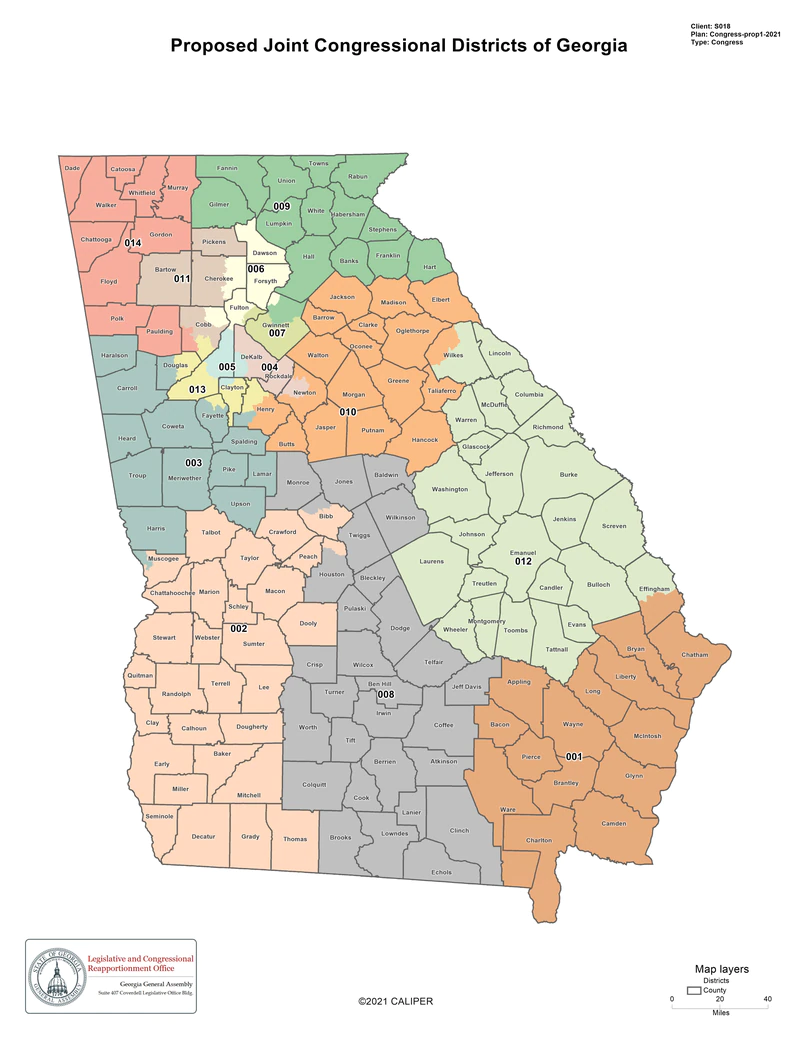
McBath could instead run in a Democratic primary against U.S. Rep. Carolyn Bourdeaux for Georgia’s 7th Congressional District, which would become more solidly liberal under the redistricting proposal. Bourdeaux’s election victory last year flipped that seat to the Democratic Party.
House Speaker David Ralston, a Republican from Blue Ridge, said the new map is “thorough, transparent and inclusive.”
“Today, we have released a proposed map that reflects Georgia’s growing, diverse population, respects jurisdictional lines and communities of interest, and conforms to applicable legal standards including the Voting Rights Act,” Ralston said.
The Republican-drawn map released Wednesday is similar to a previous proposal made public by the state Senate GOP in September. The latest map makes the 6th District even more conservative.
The 2nd District in southwest Georgia, held by Democratic U.S. Rep. Sanford Bishop, would become slightly more competitive. The proposal makes the district’s Black population 49%, down from its current 51% Black population.
In another change, the conservative northwest Georgia district held by Republican U.S. Rep. Marjorie Taylor Greene would extend into parts of Cobb County in metro Atlanta, including Austell and Powder Springs. Still, the 14th District would remain solidly Republican.
The redistricting proposal is on a fast track toward approval after the General Assembly already passed maps for the state House and Senate. The state legislative maps would safeguard Republican majorities but create a handful of new Democratic-leaning districts because of population increases primarily in the metro Atlanta area.
Redistricting is required every 10 years to ensure that districts have the same populations following the census. Georgia’s population increased by 1 million over the last decade to a total of 10.7 million, but the growth wasn’t large enough to net the state an additional seat in Congress.
Each of Georgia’s 14 congressional districts will represent about 765,000 residents.
After passing the House and Senate, the redistricting plan will head to Republican Gov. Brian Kemp for his signature.

